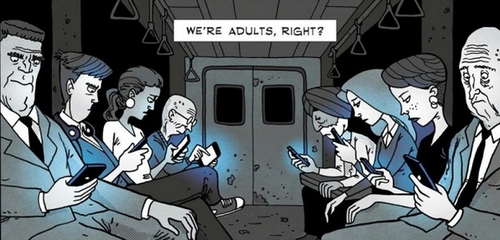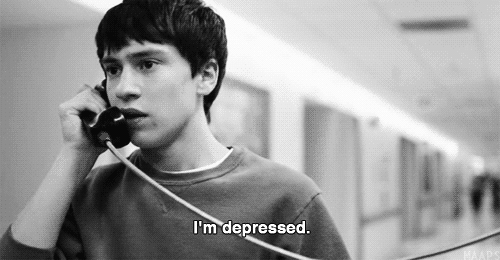
Does technology make you feel very anxious to the point that you sometimes wish the earth could swallow you? If you just nodded your head then you need to listen up.
We’ve spoken to Dr. Pablo Vandenabeele, Bupa’s Clinical Director for Mental Health, as he shares his views with us on the link between technology and depression. He also offers advice on how to improve one’s well-being by trying a simple digital detox.

April 7th marks World Health Day. This year, the focus is on depression. This common mental disorder affects people of all ages, from all walks of life around the world. Around 300 million people globally live with depression – a figure that is expected to increase.
In this era where there is a constant need to be switched on and an expectation of an instant response – with seemingly no escape from social media, work emails, Netflix and other ‘must-haves’ – is technology increasing our risk of suffering from depression?
Vandenabeele explains: “There are studies that prove the correlation between smartphones, social media and depression. These findings are also seen in day-to-day clinical practice. Technological advances have created an ‘always on’ work culture, where people are expected to be on call and responding to emails day and night.”

“It is impacting on work-life balance, which unsurprisingly affects physical and mental well-being. Those who are able to switch off when they get home tend to sleep better, respond better to stress and overall feel more satisfied,” Vandenabeele says.
And social media has driven people to feel the need to be ‘hyperconnected’ which has an effect on your well-being. Vandenabeele, continues: “Work aside, Apple recently revealed that iPhone users unlock their phones around 80 times a day on average. This level of usage is known as ‘hyperconnectivity’ – the feeling of needing to be ‘in the loop’ at all times. This can often leave people feeling anxious when they are disconnected from online conversations or instant information.”

But how does get rid of that? Vandenabeele suggested these simple methods:
- At home or out for dinner? Forget your phone.
- Turn off notifications.
- Harness existing habits.
- Use an alarm clock.
- Don’t take technology to bed with you.


